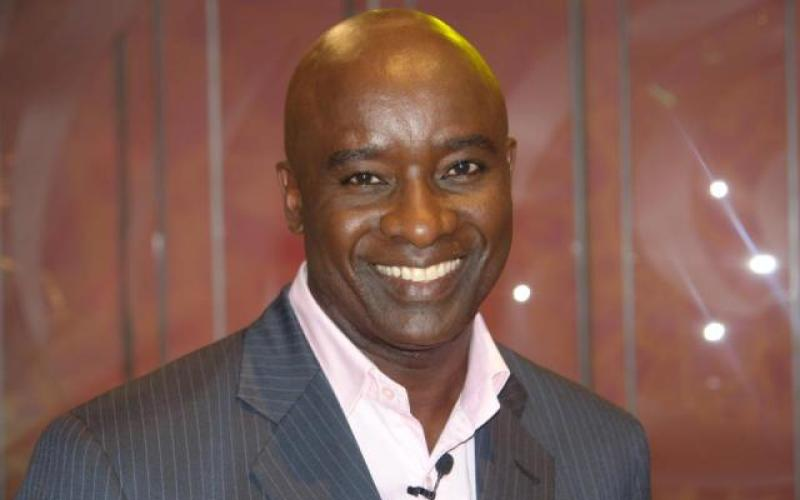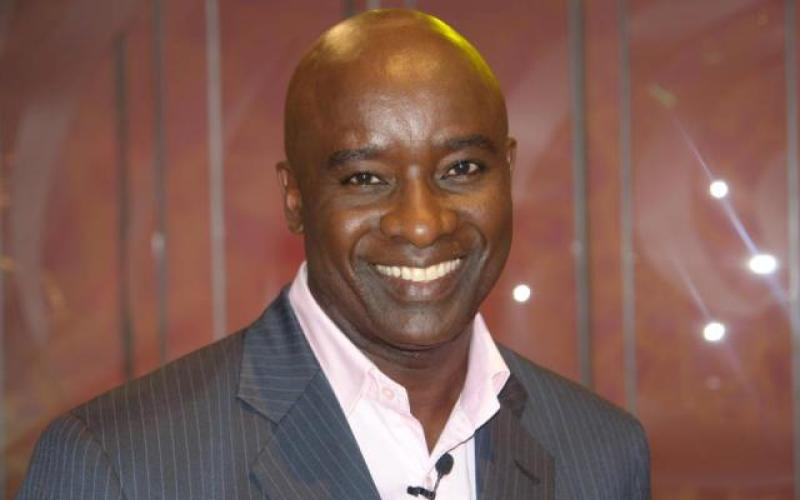To celebrate veteran playwright and actor John Sibi-Okumu turning 70, Wakio Mzenge is bringing back his poignant one-woman play, Elements. The play will be staged at the McMillan Memorial Library in August.
For the longest time, Wakio has lived many lives on stage and television, portraying serious roles: Bwatele County Governor Nerimah Mkung in the Showmax series County 49, Mama Selina in the TV series Selina, and, more recently, Queen Jezebel in Bad Girls of the Bible, a stage play by Chemichemi Players performed at the Daystar University auditorium in May. Elements is no different.
Wakio directed Elements when it starred Stephanie Maseki at the Little Theatre Club in Mombasa, and Hellen Keli during the Nairobi performance last year.
The play follows Dana, a successful woman who hides her scars of domestic violence, infidelity, grief, and loss from society.
“The story has resonated with women and transcended geographical boundaries. The audience reactions after the performance in Mombasa were mind-blowing, with many people seeing themselves in Dana or knowing a Dana in their lives,” she says.
Though she sees the two roles as blurred, her transition from director to actor was seamless. Wakio launched her directing career after training under Volume TV series director Abu Melita.
“My transition came from the fact that I’m a teacher by profession. I wanted to teach, and the closest thing to that is directing,” she says.
She describes her directorial eye as experimental, with a fusion of film techniques to create new approaches to theatre directing.
For this staging of Elements, the directorial role will be taken up by Stuart Nash of the Nairobi Performing Arts Studio.
Wakio spends her days rereading the script, with each run offering her fresh perspectives and deeper insights into the themes and the invisible characters in this one-woman show.

“With every read, I get new insights that surprise me, shock me, and make everything fall into place. Every read has its own revelation,” she says.
Wakio wants to understand what he meant with each punctuation mark. She aims to grasp what happens in the pauses. In a solo show, she says, speaking to someone who isn’t responding aloud allows her to make authentic artistic choices.
“I hear what the audience isn’t hearing, and I have to make them know what it is that I hear without telling them directly,” she explains.
When working with invisible characters, she takes time to construct their worlds and make them visible not only to herself but also to the audience. Another dynamic she explores is interpreting a play written by a man about a woman. Realising it was written through a male lens, Wakio notes that interpreting it as a woman has been particularly interesting.
“Audiences have told me they can’t believe it was written by a man because it’s a woman they see interpreting the play on stage. I’m able to create interpretations that even surprise Sibi-Okumu,” she says.
While the play tells a woman’s story, Wakio says she never lends her personal experiences to the characters she portrays. She wants them to live their own authentic lives, independent of hers.
She encourages other thespians to stage existing plays, as their interpretations could differ from previous versions—ranging from fleshing out character backstories and nuances to carving out fresh authenticity.
This year alone, about five one-person shows have been staged—something Wakio celebrates for their portability across different venues.
“Solo plays are easier to move. I’m working on a model of theatre distribution that still delivers the full theatrical experience. I’m exploring ways to distribute, and my answer is touring—taking plays that transcend geographical and cultural boundaries,” she says.
And how does she feel about carrying Sibi-Okumu’s words on stage?
“I am in awe of his eloquence and writing. Carrying his thoughts feels like an honour. I am paying tribute to a man who is now like a father to me, and to the legacy he has built over the years. I feel privileged to have the opportunity,” she says.


